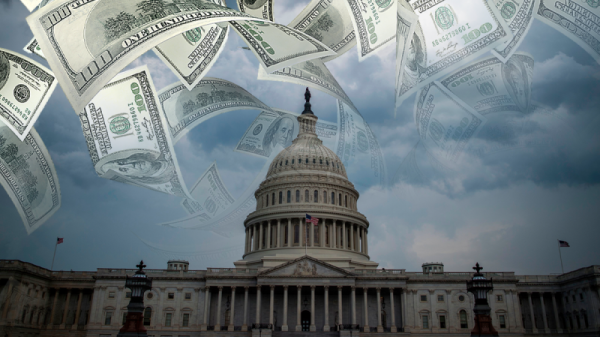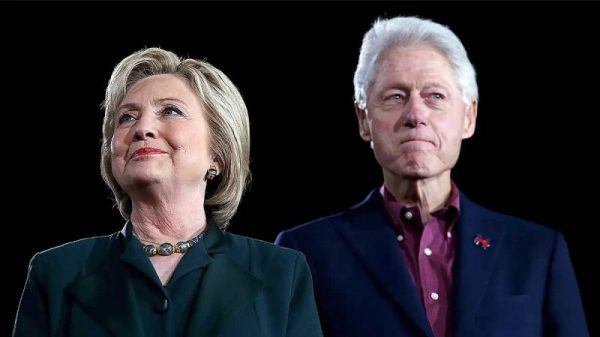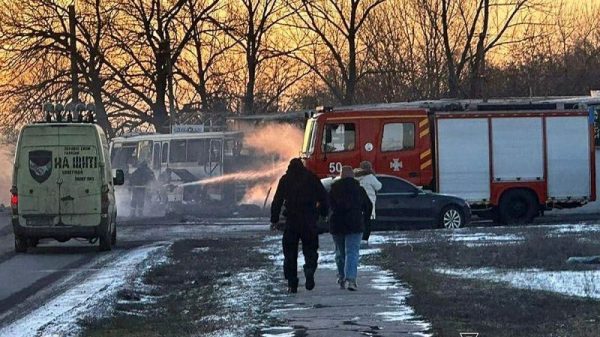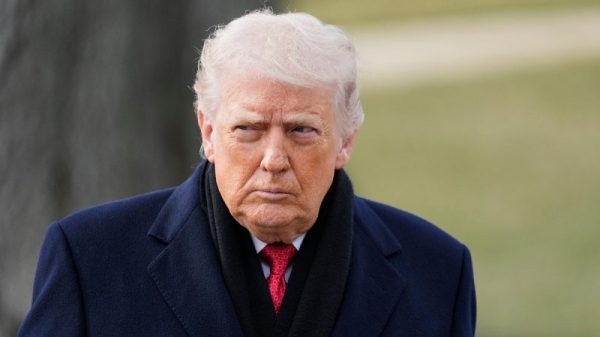When the second day of his Manhattan criminal trial wrapped Tuesday, former president Donald Trump headed uptown to visit a bodega. It was a campaign stop, alerted to the media in advance and summarized in a news release afterward. And despite insistences from Trump and his allies that having to attend the trial is an encumbrance designed to keep him off the campaign trail, the bodega visit was a good reminder that there’s still plenty of time in the week for Trump to campaign.
Especially when one campaigns the way Trump does.
Let’s consider April and May of his previous two presidential campaigns.
In 2020, he held precisely zero campaign rallies — not because he didn’t want to but because the pandemic was still new, and his approach to it was still somewhat cautious. It is admittedly unfair, though, to suggest that he could have kept up his 2020 schedule had he been on trial at that point (although he could).
In 2016, his calendar was busier. He held 44 rallies during those two months — but they were also months in which he was forcefully contesting the Republican nomination! Even so, only about half those rallies fell on weekdays when Trump would have been required to be in the courtroom in 2024. (The judge in the Manhattan case has blocked off Wednesdays to tend to other work.)
Notice what happened when he functionally secured the nomination in early May, though, after Sen. Ted Cruz (R-Tex.) and former Ohio governor John Kasich dropped out: His schedule evaporated. He wasn’t really campaigning in May anyway.
Put another way: Trump has never held presidential campaign rallies in the middle of May.
Those rallies, incidentally, were often of the fly in, speak and leave variety. In 2020, these were the centerpiece of his campaigning efforts: landing at an airport and holding a rally on the tarmac. That style of rally was covid-friendly, at least more than arena rallies, and it let him spend relatively little time on the ground.
That approach could work well this year, too. You can get from the courthouse to the helipad at South Street Seaport in about 20 minutes. It’s a half-hour to John F. Kennedy International Airport in New York by helicopter and then, say, two hours to Detroit. Another half-hour of driving, and you could have an 8:30 p.m. rally in Michigan even if court doesn’t get out until 5 p.m.
Campaigning isn’t just rallies, of course. A candidate’s time must also be spent in strategy meetings and fundraising, things that Trump will not do while he’s otherwise engaged on the 15th floor of the criminal court building. If the legal and campaign schedule is too exhausting, perhaps he will need to adjust the amount of time he spends outside of the courtroom on Truth Social posting disparaging comments and reposting news articles. (This used to be called “executive time.”)
The focus of complaints this week, though, hasn’t been the interruption to his campaign, but instead that he might not get to attend son Barron’s upcoming high school graduation. It will be held on a Thursday, requiring that Trump get approval from the court to attend. His allies have moaned loudly that Trump can’t go; in reality, the judge indicated he might be amenable to allowing him to do so.
It is admittedly unlikely that he would similarly give Trump a pass to attend a particularly important campaign rally.
When the second day of his Manhattan criminal trial wrapped Tuesday, former president Donald Trump headed uptown to visit a bodega. It was a campaign stop, alerted to the media in advance and summarized in a news release afterward. And despite insistences from Trump and his allies that having to attend the trial is an encumbrance designed to keep him off the campaign trail, the bodega visit was a good reminder that there’s still plenty of time in the week for Trump to campaign.
Especially when one campaigns the way Trump does.
Let’s consider April and May of his previous two presidential campaigns.
In 2020, he held precisely zero campaign rallies — not because he didn’t want to but because the pandemic was still new, and his approach to it was still somewhat cautious. It is admittedly unfair, though, to suggest that he could have kept up his 2020 schedule had he been on trial at that point (although he could).
In 2016, his calendar was busier. He held 44 rallies during those two months — but they were also months in which he was forcefully contesting the Republican nomination! Even so, only about half those rallies fell on weekdays when Trump would have been required to be in the courtroom in 2024. (The judge in the Manhattan case has blocked off Wednesdays to tend to other work.)
Notice what happened when he functionally secured the nomination in early May, though, after Sen. Ted Cruz (R-Tex.) and former Ohio governor John Kasich dropped out: His schedule evaporated. He wasn’t really campaigning in May anyway.
Put another way: Trump has never held presidential campaign rallies in the middle of May.
Those rallies, incidentally, were often of the fly in, speak and leave variety. In 2020, these were the centerpiece of his campaigning efforts: landing at an airport and holding a rally on the tarmac. That style of rally was covid-friendly, at least more than arena rallies, and it let him spend relatively little time on the ground.
That approach could work well this year, too. You can get from the courthouse to the helipad at South Street Seaport in about 20 minutes. It’s a half-hour to John F. Kennedy International Airport in New York by helicopter and then, say, two hours to Detroit. Another half-hour of driving, and you could have an 8:30 p.m. rally in Michigan even if court doesn’t get out until 5 p.m.
Campaigning isn’t just rallies, of course. A candidate’s time must also be spent in strategy meetings and fundraising, things that Trump will not do while he’s otherwise engaged on the 15th floor of the criminal court building. If the legal and campaign schedule is too exhausting, perhaps he will need to adjust the amount of time he spends outside of the courtroom on Truth Social posting disparaging comments and reposting news articles. (This used to be called “executive time.”)
The focus of complaints this week, though, hasn’t been the interruption to his campaign, but instead that he might not get to attend son Barron’s upcoming high school graduation. It will be held on a Thursday, requiring that Trump get approval from the court to attend. His allies have moaned loudly that Trump can’t go; in reality, the judge indicated he might be amenable to allowing him to do so.
It is admittedly unlikely that he would similarly give Trump a pass to attend a particularly important campaign rally.





















